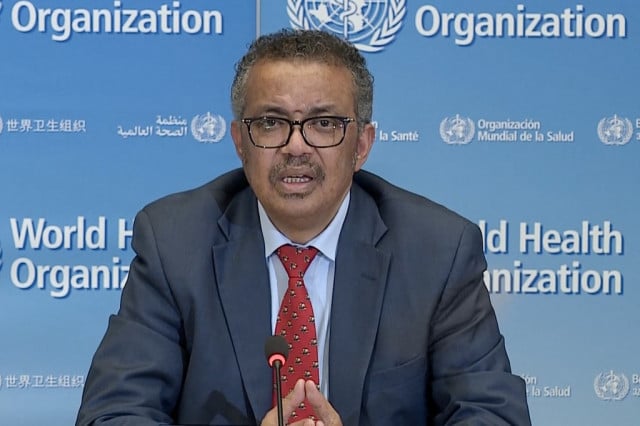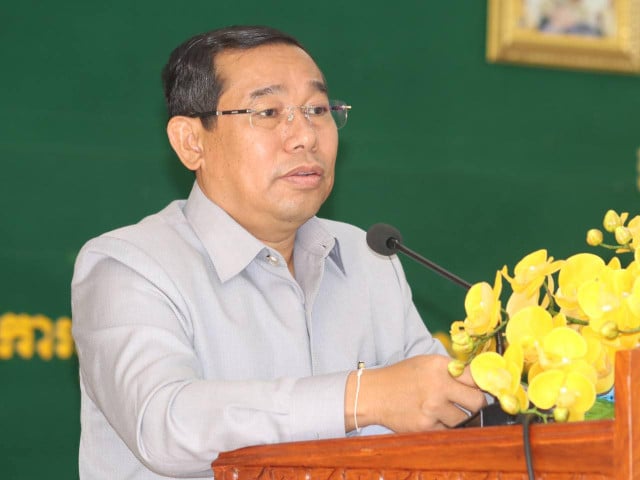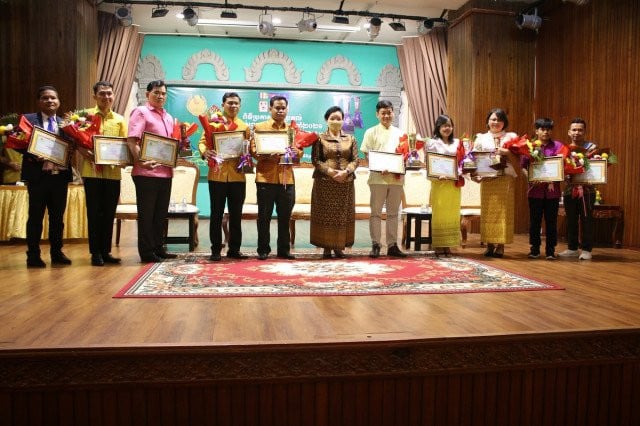WHO tells G7 vaccine inequity 'unacceptable'

- Agence France-Presse
- May 8, 2021 1:54 AM
Geneva, Switzerland | The WHO chief on Friday implored the G7 to prioritise equitable access to Covid-19 vaccines around the globe, branding the current imbalance morally inadmissible.
World Health Organization director-general Tedros Adhanom Ghebreyesus said the uneven distribution of vaccines among rich and poor nations would not help to end the coronavirus pandemic.
"For the G7 now, the most important and the immediate support we need is vaccines, and vaccine equity," he told a press conference.
Nearly 1.25 billion doses of Covid-19 vaccines have been injected in at least 210 territories around the world, according to an AFP count.
Some 45 percent of the doses have been administered in high-income countries accounting for 16 percent of the global population.
Just 0.3 percent have been administered in the 29 lowest-income countries, home to nine percent of the world's population.
"This kind of divide is unacceptable," Tedros said.
"Not because of just a moral issue, but it's unacceptable because we will not defeat the virus in a divided world."
The Group of Seven industrial powers are holding a summit on June 11-13 in Cornwall, southwest England, hosted by British Prime Minister Boris Johnson.
The WHO says the G7 has the ability to fund the vaccines, tests and treatments needed to conquer the pandemic -- and knock down the barriers blocking faster production.
"It's in every country's interest in this world to share vaccines, and to help in any way possible," said Tedros.
The WHO's Access to Covid-19 Tools Accelerator programme for finding, developing and distributing coronavirus jabs, tests and therapeutics, is $19 billion short of its $22-billion target this year.
And a further $35 to $45 billion will be needed next year to ensure most adults around the world are immunised.
Tedros wants the G7 countries -- Britain, Canada, France, Germany, Italy, Japan and the United States -- to dig deep to help find solutions.
- 'Massive force of infection' -
Around the world, the number of new Covid-19 has increased for the ninth straight week, and deaths have increased for the sixth straight week.
More cases have been reported in the past two weeks than during the first six months of the pandemic, as the pandemic rages in India.
"We're deeply concerned that many more countries will continue to be affected. We will see serious situations like what we see now in India, Brazil, Nepal and other countries," said Tedros.
WHO emergencies director Michael Ryan said he was troubled by the surge in virus transmission, as witnessed in India.
"My concern right now is that this virus has huge kinetic energy in some countries. It's got a massive force of infection," he said.
"It is being driven by human behaviour, by the emergence of variants, and many other factors.
"We're expecting the virus to slow down and we're pushing the accelerators! We have got to stop."
He said the huge spikes in infection were being pushed by proximity and mixing of people without protection, in poorly-ventilated spaces.
"I know how hard that is in the context of some countries but that is the brutal reality," said Ryan.
"We've seen the tragedy in India; we need to avoid that same tragedy occurring in other countries -- and some other countries are heading in that direction."
© Agence France-Presse















